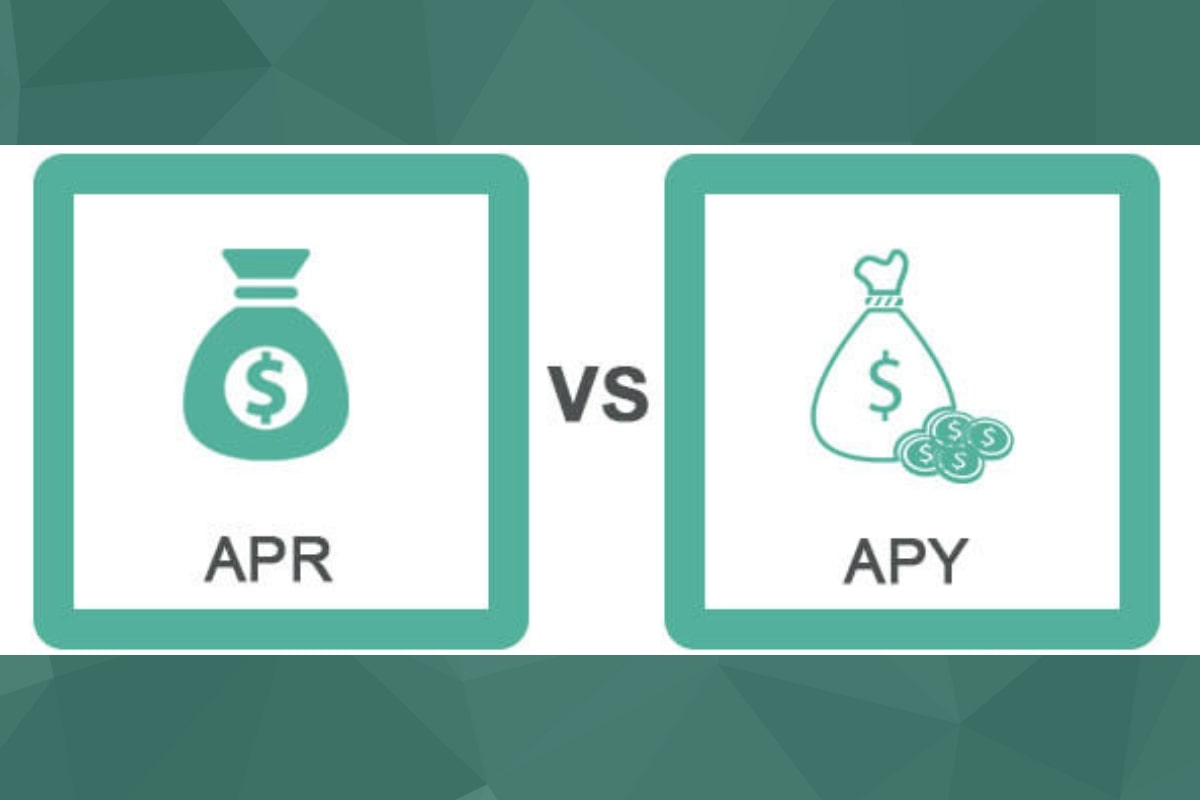

Finance
What Is Title Insurance In Florida?
Modified: December 30, 2023
Learn what title insurance is and why it's important in Florida's finance industry. Protect your investment with this crucial financial safeguard.
(Many of the links in this article redirect to a specific reviewed product. Your purchase of these products through affiliate links helps to generate commission for LiveWell, at no extra cost. Learn more)
Table of Contents
- Introduction
- What is Title Insurance?
- Why is Title Insurance Important in Florida?
- How Does Title Insurance Work in Florida?
- The Role of Title Insurance Companies
- Common Issues Covered by Title Insurance
- The Process of Obtaining Title Insurance in Florida
- How Much Does Title Insurance Cost in Florida?
- Conclusion
Introduction
Welcome to the world of title insurance in Florida! If you are in the process of buying a home or property in the Sunshine State, it is essential to understand the significance of title insurance. Often overlooked or misunderstood, title insurance is a critical component of the real estate transaction process.
Florida, with its booming real estate market and diverse property landscape, presents unique challenges when it comes to protecting property rights. Title insurance serves as a safeguard against potential risks and ensures that buyers have clear and marketable title to the property they are purchasing.
In this article, we will explore what title insurance is, why it is important in Florida, how it works, the role of title insurance companies, common issues covered, the process of obtaining title insurance, and the costs involved.
By the end of this article, you will have a comprehensive understanding of title insurance in Florida and why it is crucial for homebuyers and property owners. Let’s dive in!
What is Title Insurance?
Title insurance is a type of insurance that protects the rights and interests of homeowners and property owners against any potential risks or claims to the property’s title. It is a policy that provides coverage for any losses or damages that may arise from issues related to the property’s title.
When you buy a home or property, you are essentially buying the title, which represents your legal ownership and rights to the property. However, there can be hidden risks and defects in the title that may come to light after the purchase. These risks can include outstanding liens, unpaid taxes, undisclosed heirs, forged documents, errors in public records, or even fraudulent claims to the property.
Without title insurance, you as the buyer would be responsible for addressing these issues and resolving any claims that may arise. This can be an expensive and time-consuming process, potentially resulting in financial loss or even loss of ownership.
Title insurance protects against these potential risks by providing a comprehensive title search and examination prior to issuing a policy. This search, conducted by a title insurance company, aims to uncover any existing issues or defects in the property’s title.
If any issues are found, the title insurance company will work to resolve them before issuing the policy. In cases where undisclosed issues arise after the purchase, the title insurance policy provides coverage for any legal defense fees, as well as financial compensation for any loss in property value or loss of ownership.
It’s important to note that title insurance is different from other types of insurance policies. Unlike homeowner’s insurance or auto insurance, which provide coverage for future events, title insurance offers protection for past events or issues that may affect the property’s title.
Overall, title insurance offers peace of mind and financial protection for buyers and property owners, ensuring that their investments are secure and protected from any potential title-related risks or claims.
Why is Title Insurance Important in Florida?
Title insurance plays a crucial role in the real estate market of Florida due to several factors that make it particularly important in this state.
1. Complex Title History: Florida has a long and complex history of land ownership, with many properties having intricate title histories. This can increase the likelihood of title defects or claims that may arise during property transactions. Title insurance helps protect buyers from potential issues that may arise from these complex title histories.
2. Public Records System: Florida’s public records system, though comprehensive, is not immune to errors or omissions. Mistakes in recording documents or entering information into the public records can lead to title defects. Title insurance provides a safety net against such errors, ensuring that buyers are protected.
3. Homestead Exemption: Florida’s homestead exemption provides significant tax advantages to homeowners on their primary residences. However, it also adds complexity to title searches, as the exemption may create additional liens or claims on the property. Title insurance helps identify and resolve any issues that may arise due to the homestead exemption.
4. Environmental Concerns: Florida’s unique ecosystem, with its proximity to water bodies and susceptibility to natural disasters, can lead to environmental concerns and potential title issues. Title insurance helps protect against any unforeseen environmental liabilities that may affect the property.
5. Foreclosure Issues: Florida has experienced a high number of foreclosure cases in the past. These cases can lead to clouded titles and potential claims on foreclosed properties. Title insurance ensures that buyers are protected from any issues related to previous foreclosure cases.
6. Foreign Investment: Florida attracts a significant amount of foreign investment, particularly in the real estate market. Title insurance provides reassurance and peace of mind to international buyers, ensuring that their investments are protected and their rights to the property are secure.
Overall, title insurance is essential in Florida to mitigate the unique risks and challenges that may arise in property transactions. It provides buyers with the confidence and protection they need to invest in real estate in the Sunshine State.
How Does Title Insurance Work in Florida?
Title insurance works by providing a thorough examination of the property’s title history and offering financial protection against any defects or claims that may arise. Here’s an overview of how title insurance works in Florida:
1. Title Search: Before issuing a title insurance policy, a title company conducts a comprehensive search of public records to determine the property’s ownership history. This search includes examining deeds, mortgages, liens, judgments, and other relevant documents.
2. Title Examination: After the title search, a title examiner reviews the search results to identify any existing issues or defects in the property’s title. This examination is crucial to uncover potential risks that may impact ownership or marketability.
3. Resolving Title Issues: If any issues are discovered during the title examination, the title insurance company works to resolve them. This may involve clearing outstanding liens, addressing incorrect property descriptions, or resolving conflicting claims to the property.
4. Issuing the Title Insurance Policy: Once the title is deemed clear and marketable, the title insurance company issues the policy. This policy protects the buyer from any future claims or legal challenges to their ownership of the property.
5. Coverage and Claims: Title insurance provides financial protection in the event that an undiscovered title defect or claim arises after the property purchase. If a valid claim is filed, the title insurance company will cover the legal defense fees and any losses suffered by the insured party due to the defect.
6. Lender’s vs. Owner’s Policies: In Florida, there are typically two types of title insurance policies: lender’s policies and owner’s policies. A lender’s policy protects the mortgage lender’s interest in the property, while an owner’s policy protects the homeowner’s interest.
It’s important to note that title insurance is a one-time premium paid at the time of closing. The policy remains in effect for as long as the insured party or their heirs own the property.
When purchasing a property in Florida, working with a reputable title insurance company is essential. They will ensure that the title search and examination are conducted thoroughly and accurately, providing you with the necessary protection and peace of mind.
The Role of Title Insurance Companies
Title insurance companies play a crucial role in facilitating property transactions and protecting the interests of homebuyers and property owners in Florida. Here are the key responsibilities and functions of title insurance companies:
1. Title Examination: Title insurance companies conduct thorough title searches and examinations to determine the property’s ownership history and uncover any potential issues or defects in the title. This involves reviewing public records, deeds, mortgages, liens, judgments, and other relevant documents.
2. Issue Title Insurance Policies: Once the title examination is complete and any issues are resolved, the title insurance company issues the title insurance policy. This policy protects the insured party from any future claims or legal challenges to their ownership of the property.
3. Conduct Closing and Escrow Services: Title insurance companies often act as the closing agent in real estate transactions. They facilitate the transfer of funds and documents between the buyer, seller, and lender. They also hold the earnest money deposit in an escrow account and ensure that all necessary documents are properly executed.
4. Coordinate with Lenders and Attorneys: Title insurance companies work closely with mortgage lenders and attorneys involved in the transaction to ensure a smooth closing process. They provide necessary documentation and information to lenders, and they collaborate with attorneys to resolve any legal issues related to the property’s title.
5. Perform Title Updates: In some cases, title insurance companies may provide updates to the title search and examination even after the closing process is complete. This helps identify any potential issues that may have arisen since the policy was issued.
6. Offer Risk Mitigation and Loss Prevention: Title insurance companies employ experienced professionals who specialize in risk assessment and loss prevention. They use their expertise and knowledge to uncover potential title defects and resolve them before issuing the policy. This helps protect buyers from potential financial losses and legal disputes in the future.
In Florida, the role of title insurance companies is regulated by the Florida Department of Financial Services. This ensures that consumers are protected and that title insurance companies adhere to industry standards and ethical practices.
Selecting a reputable and experienced title insurance company is crucial when purchasing property in Florida. Their expertise and attention to detail will help ensure a smooth and secure real estate transaction, providing you with the necessary protection and peace of mind.
Common Issues Covered by Title Insurance
Title insurance provides essential coverage for a wide range of potential issues, defects, and claims that may affect the property’s title. Here are some of the common issues covered by title insurance in Florida:
1. Undisclosed Liens: Title insurance protects against undisclosed liens on the property, such as unpaid taxes, outstanding mortgages, or judgments. These liens can potentially disrupt the ownership rights of the buyer.
2. Forgery and Fraud: Title insurance protects against forged or fraudulent documents that may be discovered after the purchase. This includes cases where someone claims to be the rightful owner of the property.
3. Errors in Public Records: Errors in public records can negatively impact the ownership of the property. Title insurance provides coverage for issues such as incorrect property descriptions, incorrect names, or improper recording of documents.
4. Missing Heirs or Undisclosed Interests: Title insurance protects against claims to the property by missing heirs or undisclosed parties with an ownership interest. This coverage ensures that the buyer’s ownership is secure.
5. Boundary Disputes: Title insurance covers legal conflicts that may arise due to boundary disputes with neighboring properties. This includes cases where the property’s boundaries are mistakenly defined or disputed by others.
6. Zoning and Building Code Violations: Title insurance provides protection against zoning or building code violations that impact the property’s use or marketability. This coverage helps safeguard the buyer’s investment and prevents potential legal challenges.
7. Undiscovered Encumbrances: Title insurance covers any undisclosed encumbrances on the property, such as easements, restrictions, or encroachments. These encumbrances can limit the buyer’s rights to the property.
8. Invalid or Improperly Executed Documents: Title insurance protects against invalid or improperly executed documents that may arise during the property transaction process. This ensures that the buyer’s ownership rights are not compromised.
It’s important to note that the specific coverage provided by title insurance can vary depending on the policy and endorsements. It is advisable to review the policy carefully and consult with the title insurance company to understand the specific coverage and any exclusions.
Having title insurance in place provides buyers with peace of mind and financial protection against these common issues and potential risks to the property’s title. It ensures that the buyer’s investment in the property is secure and protected from any unforeseen claims or defects.
The Process of Obtaining Title Insurance in Florida
Obtaining title insurance in Florida involves several steps to ensure that the property’s title is clear and marketable. Here is an overview of the process:
1. Engaging a Title Insurance Company: The first step is to engage a reputable title insurance company in Florida. It’s important to select a company with experience, expertise, and a good reputation in the industry.
2. Title Search and Examination: The title insurance company conducts a thorough title search and examination. This involves reviewing public records and other relevant documents to uncover any potential issues or defects in the property’s title.
3. Resolving Title Issues: If any issues are discovered during the title examination, the title insurance company works to resolve them. This may involve clearing outstanding liens, correcting errors in public records, or addressing other issues that may affect the property’s title.
4. Estimating the Premium: Once the title examination is complete, the title insurance company will provide an estimate of the premium. The cost of title insurance is typically based on the purchase price of the property.
5. Closing and Escrow Services: The title insurance company often acts as the closing agent in the transaction. They handle the details of the closing process, including the transfer of funds, preparation and execution of necessary documents, and holding the earnest money deposit in an escrow account.
6. Issuing the Title Insurance Policy: After the closing, the title insurance company issues the title insurance policy. This policy serves as a legal contract and provides coverage for any future claims or issues that may arise with the property’s title.
7. Ongoing Support and Services: Even after the policy is issued, the title insurance company continues to provide ongoing support and services. This may include assistance with title updates, guidance on resolving title-related matters, and answering any questions or concerns that may arise.
It’s important to note that title insurance is typically obtained in conjunction with the real estate transaction process. The buyer is responsible for securing title insurance to protect their interests in the property.
Working with a trusted title insurance company is essential to ensure a smooth and secure process of obtaining title insurance in Florida. They will help navigate the complexities of the title search, address any issues that arise, and provide the necessary coverage and protection for the buyer’s investment.
How Much Does Title Insurance Cost in Florida?
The cost of title insurance in Florida can vary depending on several factors, including the purchase price of the property and the specific coverage provided by the policy. Here are a few key considerations regarding the cost of title insurance:
1. Standard Rates: In Florida, title insurance premiums are regulated by the state. The Florida Department of Financial Services sets the standard rates for title insurance policies. These rates are based on the purchase price or loan amount of the property.
2. Promulgated Rates: Title insurance companies in Florida are required to use the promulgated rates established by the state. These rates provide consistency and ensure that buyers are charged a fair and regulated amount for title insurance coverage.
3. Additional Endorsements: Depending on the buyer’s needs and the unique characteristics of the property, additional endorsements may be added to the title insurance policy. These endorsements provide additional coverage against specific risks or issues, but they can also increase the cost of the policy.
4. Owner’s vs. Lender’s Policies: The cost of title insurance can also vary based on whether the policy is an owner’s policy or a lender’s policy. The lender’s policy protects the lender’s interests in the property and is typically paid for by the buyer. The owner’s policy protects the buyer’s ownership rights and is an additional cost.
5. Shop Around for Quotes: It is recommended to shop around and obtain quotes from different title insurance companies in Florida. While the standard rates are regulated, additional fees and charges can vary between companies. Comparing quotes will help buyers find the most affordable and reliable option.
6. One-Time Premium: Title insurance is a one-time premium paid at the time of closing. Once the premium is paid, the policy remains in effect for as long as the insured party or their heirs own the property.
It’s important to note that the cost of title insurance is a small fraction of the overall property purchase price. While the premium may vary, the protection and peace of mind it offers are invaluable in safeguarding the buyer’s investment.
When obtaining title insurance in Florida, it is advisable to work with a reputable and experienced title insurance company. They will provide a clear breakdown of the costs involved and ensure that the buyer receives the necessary coverage and protection at a reasonable price.
Conclusion
Understanding the importance and process of obtaining title insurance in Florida is essential for homebuyers and property owners. Title insurance provides crucial protection against potential risks and claims that may arise from issues affecting the property’s title.
By conducting a thorough title search and examination, title insurance companies in Florida identify any existing issues and work to resolve them before issuing the policy. This ensures that buyers have clear and marketable title to their property, providing peace of mind and protecting their investment.
Common issues covered by title insurance include undisclosed liens, forgery or fraud, errors in public records, boundary disputes, and zoning violations. The coverage provided by title insurance helps mitigate these risks and protects buyers from potential financial loss and legal disputes.
The process of obtaining title insurance involves engaging a reputable title insurance company, conducting a title search, resolving any issues, and issuing the policy. Working with experienced professionals ensures a smooth and secure transaction, providing buyers with the necessary protection and peace of mind.
While the cost of title insurance in Florida can vary based on factors such as the purchase price and specific coverage, it is a one-time premium paid at the time of closing. Comparing quotes from different title insurance companies can help buyers find the most affordable option without compromising on the quality of coverage.
In conclusion, title insurance plays a vital role in the real estate market of Florida. It protects the rights and interests of buyers and property owners, offering financial security and assurance that their investment is safeguarded against any unforeseen title-related issues or claims.
Before finalizing a real estate transaction in Florida, be sure to consult with a reputable title insurance company to understand the process, costs, and coverage involved. With title insurance in place, you can confidently move forward with your property purchase or ownership, knowing that your rights and investment are protected.














